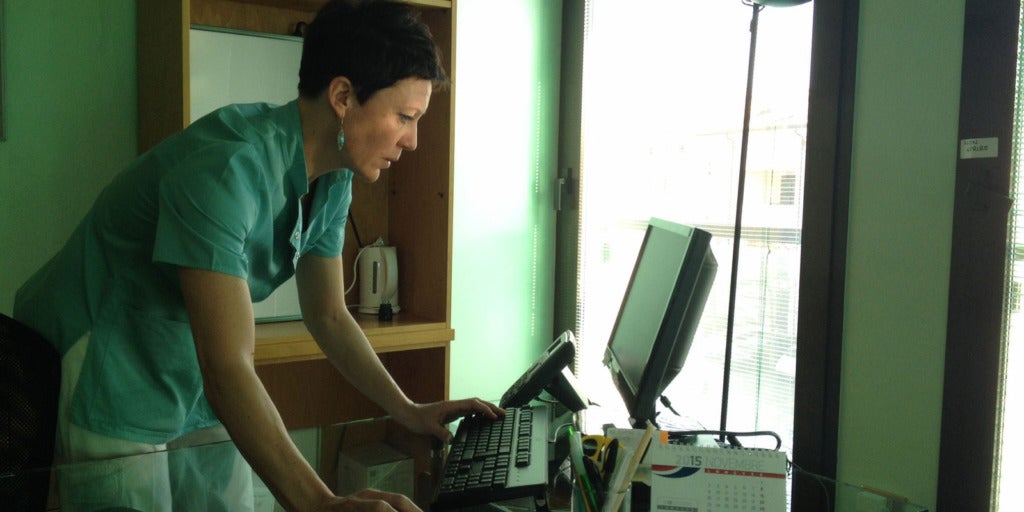Healthcare providers are a hive of highly sensitive patient information, making them a lucrative target for cybercriminals. The HIPAA Journal reports the number of healthcare data breaches has increased year-on-year—impacting millions of patient records.
With much at stake, it’s unsurprising that data security is a top concern across the industry. And yet, many organizations fail to adequately protect against the real threat. The threat from within.
That’s because most healthcare data breaches are caused by internal actors rather than external ones. A 2018 Verizon report found that more security incidents were caused by human error and privilege misuse than ransomware, hacking, or malware scams.
There are more interlinking parts to healthcare data protection than ever, meaning compliance is of the utmost importance. Last year, Nintex released a whitepaper on the risks to compliance in healthcare. To find out more, you can download the paper here:
The Healing Process: How automation can help the healthcare industry improve compliance
In this post, we explore how modern technology, data practices, and processes are transforming healthcare data protection and compliance.
Automation and Healthcare Data Protection
Deploying the latest data security technology can fortify your business from cyber attacks. But as cybercriminals also gain access to better tech, their attacks get more tactical and sophisticated.
Unintentional data breaches, however, can be prevented. The top two causes of security incidents (human error, 33.5 percent; misuse, 29.5 percent) are preventable with the right processes in place.
Intelligent Process Automation (IPA) is the next generation of process automation and holds the keys to ensuring greater healthcare data protection and compliance. Made up of six components—robotic process automation, advanced workflows, document generation, mobile apps, process intelligence, and machine learning—IPA holds the potential to transform healthcare processes in terms of productivity and compliance.
3 Ways Automation can Improve Healthcare Data Protection
1. Auditing security controls
Internal audits are critical to ensuring patient information is not being misused or abused.
Systems need to be monitored so any unusual activity can be highlighted. This usually only comes to light when auditors suspect something wrong has happened. By then, it’s often too late.
By constantly monitoring for any unusual behavior rather than leaving it until someone notices something suspicious, automation allows healthcare organizations stay ahead of any potential rule-breaking or data breaches.
The whitepaper states:
“Audit controls include a set of rules that monitor for any kind of suspicious activity. If a pediatric nurse looks at the drug and alcohol records of an adult patient, for example, a workflow can be triggered and automatically send an email to the head of operations.”
2. Providing patient records
In the US, the HITECH Act gives patients the right to obtain all their personal information in electronic format at their request. The problem for healthcare organizations is that information is often stored in a variety of document libraries, inboxes, and both cloud and on-premises systems, making it much harder to find and access information when needed.
The whitepaper states:
“Workflow automation software allows users to simply enter their details into a request form on a website. This would trigger a workflow that searches for information pertaining to individuals across millions of lines of data in the organization’s systems.”
3. Announcing breaches
New data regulations like the GDPR are putting added emphasis on organizations reporting any suspected breaches to patients and the authorities. If this process is manual, there are several potential breakpoints that could further damage an organization’s reputation if it is ‘hiding’ the truth.
The whitepaper states:
“By launching a workflow as soon as a breach is discovered, you are provided the necessary deliverables: a personalized letter to patients describing the situation, an explanatory email sent to government agencies, and a press release to go to selected new outlets. This ensures no further mistakes are made, and that all the correct and legally required information is sent out at the right time.”
Controlling the Technological Evolution in Healthcare
Healthcare is an industry where technology has incredibly transformative powers. While advancements in technology allow for the better care of patients, it’s the healthcare professionals and organizations who seem to suffer, as they struggle to keep track of swathes of sensitive information.
While current-day tech is enabling us to generate more data than ever, IPA and workflow automation can enable the levels of compliance the healthcare industry needs.
Find out more in our whitepaper: “The Healing Process”







